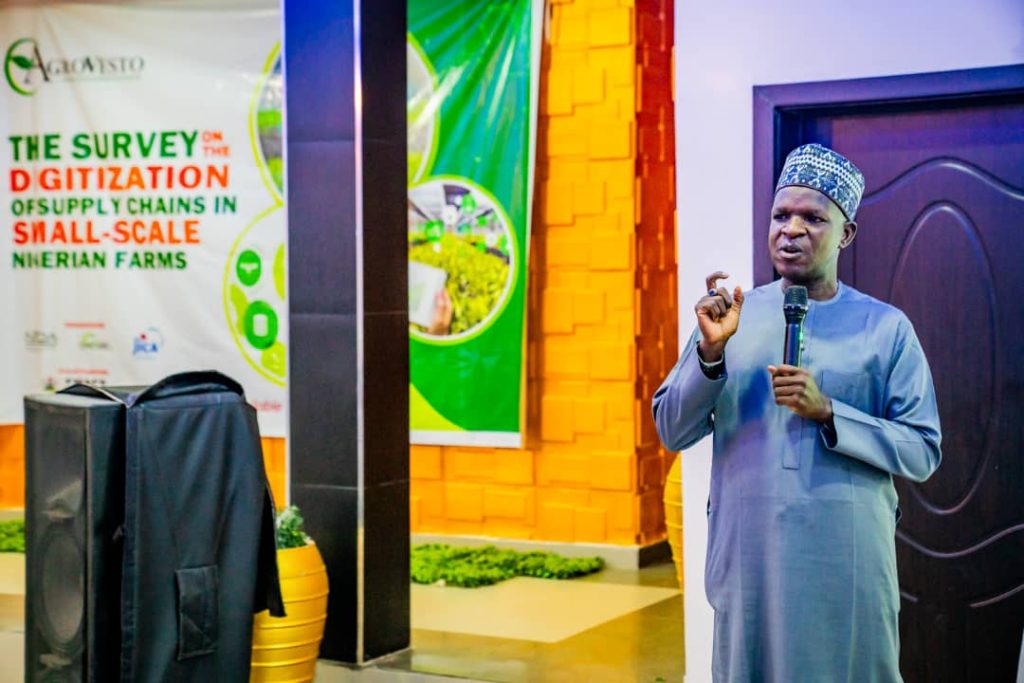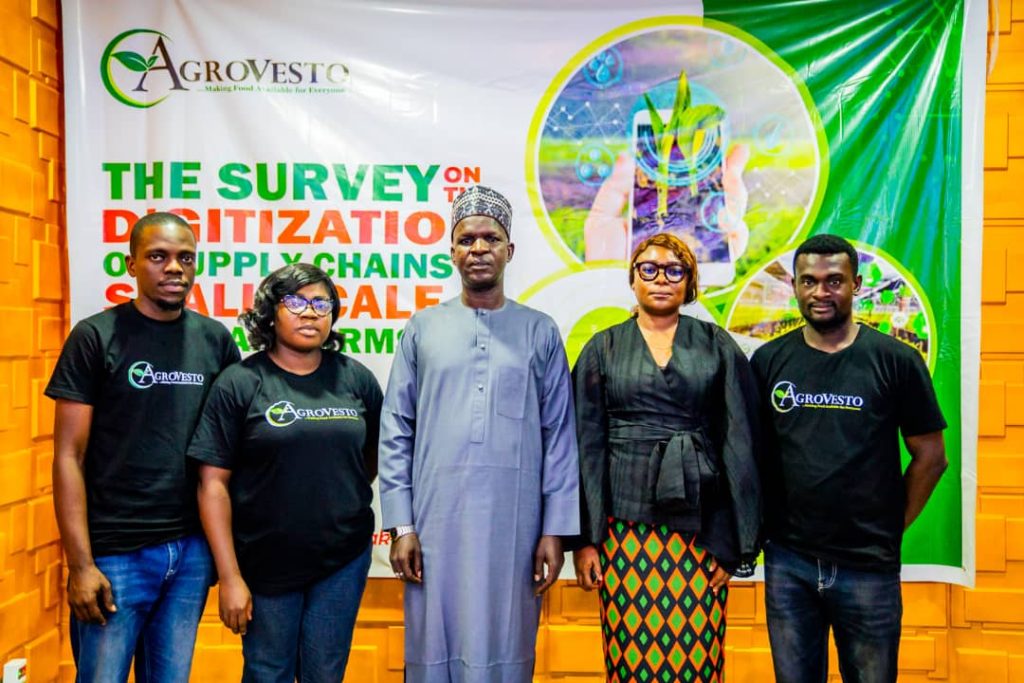News
DIGITAL SUPPLY CHAINS TO TRANSFORM SMALL-SCALE FARMING IN NIGERIA – DG NITDA
DIGITAL SUPPLY CHAINS TO TRANSFORM SMALL-SCALE FARMING IN NIGERIA – DG NITDA
AJAGBE ADEYEMI TESLIM
SPONSORED BY: H&H
The Director General, National Information Technology Development Agency (NITDA) Kashifu Inuwa has emphasised the transformative potential of advanced technologies such as Artificial Intelligence (AI), the Internet of Things (IoT), and blockchain in addressing challenges faced by Nigeria’s farmers, noting that these technologies can revolutionise agricultural practices and improve food security.

The representative of the Director General NITDA, Dr Salisu Kaka delivering a keynote speech at the Launching of the Survey on Digitisation of Supply chains in Small-Scale Nigerian Farms in Abuja.
Inuwa, who was represented by Engr. Salisu Kaka, Director of Digital Economy Department, said this while delivering a keynote speech in Abuja at the Launching of the Survey on the Digitisation of Supply-Chain in Small-Scale Nigerian Farms Project organised by AGROVESTO (an Agritech startup and a beneficiary of the iHatch Incubation Programme Cohort 2) in conjunction with NITDA, Office for Nigeria Digital Innovation (ONDI), Japan International Cooperation Agency (JICA) with Federal Ministry of Agriculture and Food Security (FMAFS) as partner.
The event’s purpose was to launch a project that will enable smallholder farmers in Nigeria to thrive, increase their income, and expand their market opportunities thereby creating wealth and prosperity for the country through agriculture.
Inuwa stated that agriculture employs a significant number of Nigerians and accounts for 25.18 per cent of Nigeria’s GDP in 2023 through crop production, livestock, forestry, and fishing, with crop production taking the largest share; maintaining that digitising the supply chain for small-scale farms offers a transformative solution to the challenges of food security in the country.

Representative of the DG NITDA flanked by the National Coordinator Office for Nigeria Digital Innovation Ms Victoria Fabunmi and the AGROVESTO team.
He explained that small-scale farmers are the backbone of crop production in Nigeria. Still, they face numerous challenges including limited access to technology, high production costs, limited financing, high post-harvest losses, poor market access, labour shortages, and high labour costs.
These issues he noted hinder their productivity and economic potential.
Inuwa affirmed that supply chain optimisation will ensure that small-scale farmers can meet the increasing consumer demands, enhance food quality and safety, and promote and utilise sustainable practices.
“This can be achieved through the adoption of technologies such as Artificial Intelligence (AI), which can handle time-demanding tasks using machine learning and predictive modelling; the Internet of Things (IoT), which can monitor crops and generate real-time data to inform automation and best practices; and blockchain, which can provide end-to-end traceability in supply chains with sharable data, building consumer trust and even making it easier to isolate and manage disease outbreaks in crops,” Inuwa said.
He said “NITDA has been actively supporting the growth of Nigeria’s agricultural sector. One key initiative is the National Adopted Village for Smart Agriculture (NAVSA) which has engaged 965 farmers in integrating technology into agriculture.”
“Our Strategic Roadmap and Action Plan, 2024 – 2027 (SRAP 2.0) also highlights our focus on promoting technology in agriculture to boost food security, increase the sector’s GDP contribution, drive economic diversification, and create jobs, aligning with the priorities of President Bola Ahmed Tinubu’s Renewed Hope Agenda,” he added.
Citing a good use case of digitised agricultural sector, Inuwa disclosed that according to the Food and Agriculture Organisation of the United Nations (FAO), agriculture contributes 33 per cent to Kenya’s GDP.
He divulged that JICA, through its Small Horticulture Empowerment & Promotion (SHEP) Approach, doubled the income of 2,500 small-scale farmers between 2007 and 2009 alone.
During his presentation, Co-founder/CEO AGROVESTO Bayo Adewoye said that 63.5 per cent of these farmers earn between 20,000 and 100,000 naira monthly during the sales season while 63 per cent take their products to the open market to sell.
He added that the project has been designed to address these challenges, and the expected outcomes include; improved farmer income by connecting farmers to wider markets through digital tools and increasing their bargaining power and sales, boosting their incomes.
Furthermore, efficient Supply Chains by digitising agricultural value chains can reduce post-harvest losses and improve the flow of goods, benefiting farmers and markets.
He said the initiative enhances digital literacy, empowers farmers with digital skills to enable them leverage technology to access information and expand their market reach.
He further explained that the next step is to rollout digitisation of access to the market which entails the design and integration of a tailored digital platform for market access. And the onboarding of cooperatives and SHEP graduates to the platform.
Then monitoring and evaluation activities which includes review meetings with JICA and ONDI, webinar and knowledge sharing.
